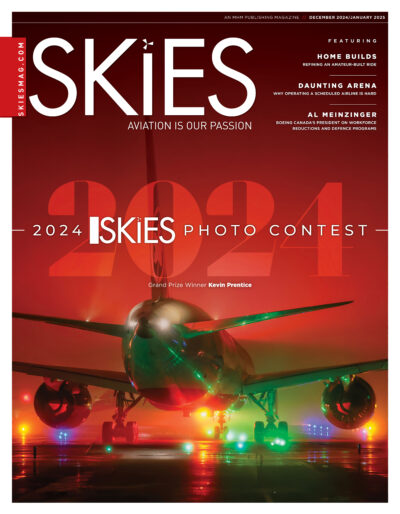As they spoke with senior pilots at aviation gatherings like Sun n’ Fun and EAA Airventure Oshkosh, the insurance agents at SkyWatch found confirmation of what they see as a growing need.
Many private pilots in their 70s were being turned down for liability insurance policies that opened them up to all kinds of personal risk. The policies available were, in some cases, entirely unaffordable.
“Unfortunately, a lot of them are flying without insurance at all,” said Alon Admi, aviation manager at the SkyWatch insurance company.
“Many were forced to sell their aircraft …. There was a clear demand from this segment of pilots, who were either uninsured or underinsured, but still passionate about flying.”
The American Owners and Pilots Association (AOPA) has actively lobbied for affordable liability insurance to cover its senior members, particularly those age 70 and older.
If a pilot is willing to self-insure their aircraft, AOPA has sought a liability-only option that would provide estate protection if necessary. This would also enable pilots to comply with hangar lease and state regulations that require a third-party liability coverage for bodily injury and property damage.
SkyWatch launched such a policy in August 2024, offering up to $1 million in liability coverage to pilots with aircraft that have an N-number and are mainly based in the United States.
Canadian pilots who meet those requirements are also eligible for the policy, though Canadian-registered aircraft are exempt. Still, some observers predict demand for this kind of insurance will grow as Baby Boomer pilots get older.
In this case, liability coverage only applies when an aircraft is used for personal or business purposes; it does not extend to commercial flights. SkyWatch sees this as a market with significant potential, saying it expects to serve thousands of senior pilots over the next few years.
“This offering is a game-changer for our senior members,” said Mark Baker, president and CEO of AOPA, in a release.
“We’re pleased to see SkyWatch addressing a critical need in the market, allowing our seasoned pilots to stay in the skies safely and affordably.”
SkyWatch uses an online screening process to filter applications, in some cases providing insurance quotes within seconds. Phone consultations are also available, and the company said it is already fielding several requests a day.
Anyone with an active U.S. pilot’s licence and medical clearance to fly is eligible for consideration, regardless of age.
“There are no additional medical examinations required as part of our screening process,” said Admi. “We accept all types of medicals, including Basic Meds.”
Though airline pilots face mandatory retirement at age 65 under International Civil Aviation Organization (ICAO) rules, private pilots in the U.S. can continue flying well into their 80s.
“While it’s true that senior pilots may be involved in more accidents than younger pilots, the risks are manageable and reasonable,” said Admi.
“In fact, older pilots are some of the most experienced in the sky, having flown for many years. Their extensive experience often makes them more cautious and safety-conscious. Many senior pilots choose to fly only under VFR (visual flight rules) conditions or in perfect weather, reducing potential risks.
“With careful consideration of their aircraft, experience, and flying habits, we believe that senior pilots can continue flying safely and responsibly.”
SkyWatch weighs a series of factors in its screening process, including age of the pilot, make-and-model experience, aircraft type, and aircraft value.
“We frequently approve older pilots who fly simple, fixed-gear aircraft like Cessna 172s, Cessna 182s, and Piper Cherokees, in their 80s,” said Admi.
“However, we may be more cautious when it comes to insuring older pilots flying more complex aircraft, such as Bonanzas or Saratogas.”
SkyWatch has no immediate plans to offer this kind of coverage in Canada, but Admi said they’re keeping their options open.
“We would like to help senior pilots fly a couple more years,” he said. “They really want to fly. That’s their passion.”


